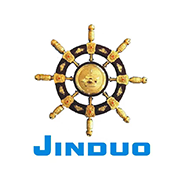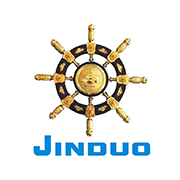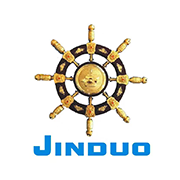news
Building Trust: The Crucial Role of Security in Ship Trading Platforms
Building Trust: The Crucial Role of Security in Ship Trading Platforms
Table of Contents
- Introduction to Ship Trading Platforms
- The Importance of Security in Ship Trading
- Key Security Challenges in Ship Trading Platforms
- Best Practices for Enhancing Security in Ship Trading
- Emerging Technologies for Security in Ship Trading Platforms
- Regulatory Compliance and Its Impact on Security
- Building Trust Through Transparency and Communication
- Future Trends in Ship Trading Security
- FAQs about Security in Ship Trading Platforms
- Conclusion
Introduction to Ship Trading Platforms
In today’s global maritime industry, ship trading platforms play a pivotal role in facilitating the buying and selling of vessels and maritime equipment. With the significant economic implications tied to these transactions, the integrity and security of these platforms cannot be overstated. As maritime businesses increasingly rely on digital platforms for trading, the necessity for robust security measures becomes paramount. This article delves into the essential aspects of security in ship trading platforms and how they contribute to building trust among stakeholders.
The Importance of Security in Ship Trading
Security in ship trading platforms is not just an afterthought; it is a fundamental requirement that underpins the entire trading process. Here are several reasons why security is crucial:
1. Protecting Sensitive Information
Ship trading involves the exchange of sensitive information, including financial details, contracts, and proprietary data. A breach in security can lead to significant losses for both buyers and sellers, making it essential to implement stringent security measures to protect this information.
2. Preventing Fraud and Scams
The maritime sector is not immune to fraud. Cybercriminals often target ship trading platforms to exploit vulnerabilities. By prioritizing security, these platforms can effectively deter fraudulent activities and protect their users from scams.
3. Enhancing User Confidence
When users know that their data and transactions are secure, their confidence in using the platform increases. This trust is vital for user retention and attracting new clients, making security a cornerstone of successful ship trading platforms.
Key Security Challenges in Ship Trading Platforms
Despite the importance of security, ship trading platforms face several challenges that can compromise their integrity:
1. Cyber Threats
The rise of cyber threats poses a significant challenge. Hackers employ various tactics, including phishing scams, malware, and ransomware, to breach system defenses. Ship trading platforms must stay ahead by continuously updating their security protocols.
2. Insider Threats
Not all threats come from outside sources. Insider threats, whether intentional or accidental, can lead to data breaches. Employee training and access controls are crucial in mitigating these risks.
3. Regulatory Compliance
Compliance with international regulations, such as the General Data Protection Regulation (GDPR) and the Maritime Industry’s standards, can be complex. Non-compliance can lead to hefty fines and damage to reputation.
Best Practices for Enhancing Security in Ship Trading
To mitigate security risks, ship trading platforms must adopt effective best practices:
1. Multi-Factor Authentication (MFA)
Implementing multi-factor authentication adds an additional layer of security, requiring users to provide two or more verification factors to gain access.
2. End-to-End Encryption
End-to-end encryption ensures that all data transmitted between users and the platform is securely encrypted, reducing the risk of interception by unauthorized parties.
3. Regular Security Audits
Conducting frequent security audits helps identify vulnerabilities and assess the effectiveness of existing security measures.
4. Employee Training and Awareness
Educating employees about security protocols and the latest cyber threats is vital. Regular training can empower staff to recognize and respond to potential security breaches.
Emerging Technologies for Security in Ship Trading Platforms
Advancements in technology are paving the way for enhanced security measures in ship trading:
1. Blockchain Technology
Blockchain technology offers a decentralized and tamper-proof method for recording transactions. Its transparency and security can significantly reduce fraud and ensure data integrity.
2. Artificial Intelligence (AI) and Machine Learning
AI and machine learning can analyze patterns and detect anomalous behavior in real-time, providing an additional layer of security against cyber threats.
3. Biometric Authentication
Biometric authentication, such as fingerprint or facial recognition, is becoming increasingly popular. This technology provides a high level of security by using unique biological traits for user verification.
Regulatory Compliance and Its Impact on Security
Navigating the complex regulatory landscape is essential for maintaining security in ship trading platforms:
1. Understanding Relevant Regulations
Knowledge of applicable laws and regulations is crucial for ensuring compliance. Platforms must stay updated on changes and adapt their security measures accordingly.
2. Implementing Compliance Measures
Adopting measures to comply with regulations, such as data protection policies and regular audits, is essential for maintaining security and avoiding legal repercussions.
Building Trust Through Transparency and Communication
Transparency is key to building trust in ship trading platforms:
1. Open Communication
Engaging in open communication with users about security measures and protocols fosters trust. Users should be informed about how their data is protected and what measures are in place to combat security threats.
2. Sharing Security Metrics
Providing users with insights into security performance metrics can enhance their confidence in the platform. Data such as incident response times and successful threat mitigations can reassure users of the platform’s security.
Future Trends in Ship Trading Security
As technology continues to evolve, so too will the security measures in ship trading:
1. Increased Use of AI
The integration of AI will likely become more prevalent, enabling platforms to predict and respond to security threats more effectively.
2. Enhanced Regulation
We can expect more stringent regulations aimed at protecting data and enhancing security, driving platforms to prioritize compliance and robust security measures.
3. Focus on User Education
Educating users about security risks and best practices will become increasingly important as threats evolve.
FAQs about Security in Ship Trading Platforms
1. What are the main security risks in ship trading platforms?
The main security risks include cyber threats, insider threats, and non-compliance with regulations.
2. How can multi-factor authentication enhance security?
Multi-factor authentication requires users to provide multiple verification forms, making unauthorized access significantly more challenging.
3. What role does blockchain play in improving security?
Blockchain offers a secure, transparent, and tamper-proof method for recording transactions, which helps prevent fraud.
4. Why is employee training important for security?
Educated employees can recognize potential security threats and respond appropriately, reducing the likelihood of successful breaches.
5. How can I ensure a ship trading platform is secure?
Look for platforms that implement robust security measures, such as encryption, multi-factor authentication, and regular security audits.
Conclusion
The importance of security in ship trading platforms cannot be overstated. As the maritime industry continues to evolve and digitalize, prioritizing security will not only protect sensitive information but also build trust among users. By implementing best practices, leveraging emerging technologies, and ensuring regulatory compliance, ship trading platforms can create a secure trading environment that fosters confidence and reliability. Moving forward, a commitment to continual improvement in security measures will be essential to navigate the complex landscape of ship trading successfully.
Other news
The Future of Maritime Transportation: Self Unloading Bulk Carriers Explained
The Future of Maritime Transportation: Self Unloading Bulk Carriers Explained Table of Contents 1. Introduction to Maritime Transportation 2. What Are Self Unloading Bulk Carriers? 3. Historical Evolution of Bulk Carriers 4. Mechanisms of Self Unloading Technology 5. Benefits of Self Unloading Bulk Carriers 6. Environmental Impact of Self Unloading Bulk Carriers 7. Fut
Understanding the 5000 DWT Bulk Carrier: Key Features and Operational Insights
The 5000 DWT (Deadweight Tonnage) bulk carrier is designed to efficiently transport a wide range of bulk cargoes, including grains, coal, minerals, and other solid commodities. Such vessels play a pivotal role in global trade, as they are capable of navigating both coastal and deep-water routes with ease. Their moderate size allows for flexibility in port access and reduced operational costs, maki
Evaluating the Best Practices for Using a Ship Trading Platform
Evaluating the Best Practices for Using a Ship Trading Platform Table of Contents 1. Introduction to Ship Trading Platforms 2. Understanding Ship Trading and Its Importance 3. Key Features of Effective Ship Trading Platforms 4. Best Practices for Successful Ship Trading 4.1 Conducting Thorough Market Research 4.2 Leveraging Data Analytics
Privacy
The Software respects and protects the personal privacy of all users of the Services. In order to provide you with a more accurate and personalized service, the Software will use and disclose your personal information in accordance with this Privacy Policy. However, the Software will treat such information with a high degree of diligence and duty of care. Except as otherwise provided in this Privacy Policy, the Software will not disclose or provide this information to third parties without your prior permission. The Software may update this Privacy Policy from time to time. You will be deemed to have agreed to this Privacy Policy in its entirety when you agree to the Software Service Use Agreement. This Privacy Policy is an integral part of this Software Service Use Agreement. 1. Scope of ApplicationIn your use of the Software's network services, the Software automatically receives and records information on your cell phone, including, but not limited to, your health data, the language used, the date and time of access, information on hardware and software characteristics, and data on webpage records of your needs; 2. Use of InformationAfter obtaining your data, the Software uploads it to the server to generate your leaderboard data so that you can better use the Services. The Software will upload your data to the server to generate your ranking data so that you can use the service in a better way. 3. Information Disclosure 3.1 The Software will not disclose your information to untrusted third parties. 3.2 In accordance with the relevant provisions of the law, or the requirements of administrative or judicial bodies, disclosure to third parties or administrative or judicial bodies; 3.3 If you appear to violate the relevant Chinese laws, regulations or relevant rules, it is necessary to disclose it to a third party; 4. Information Storage and Exchange The information and materials collected by the Software about you will be stored on the servers of the Software and/or its affiliates. The information and data may be transferred to and accessed, stored and displayed outside of your country or region or the country in which the Software collects the information and data. 5. Information Security When using the Software's network services to conduct online transactions, you will inevitably disclose your personal information, such as contact information or postal address, to the counterparty or potential counterparty. Please protect your personal information and provide it to others only when necessary. If you find that your personal information has been compromised, please contact the software's customer service immediately so that the software can take appropriate measures.














